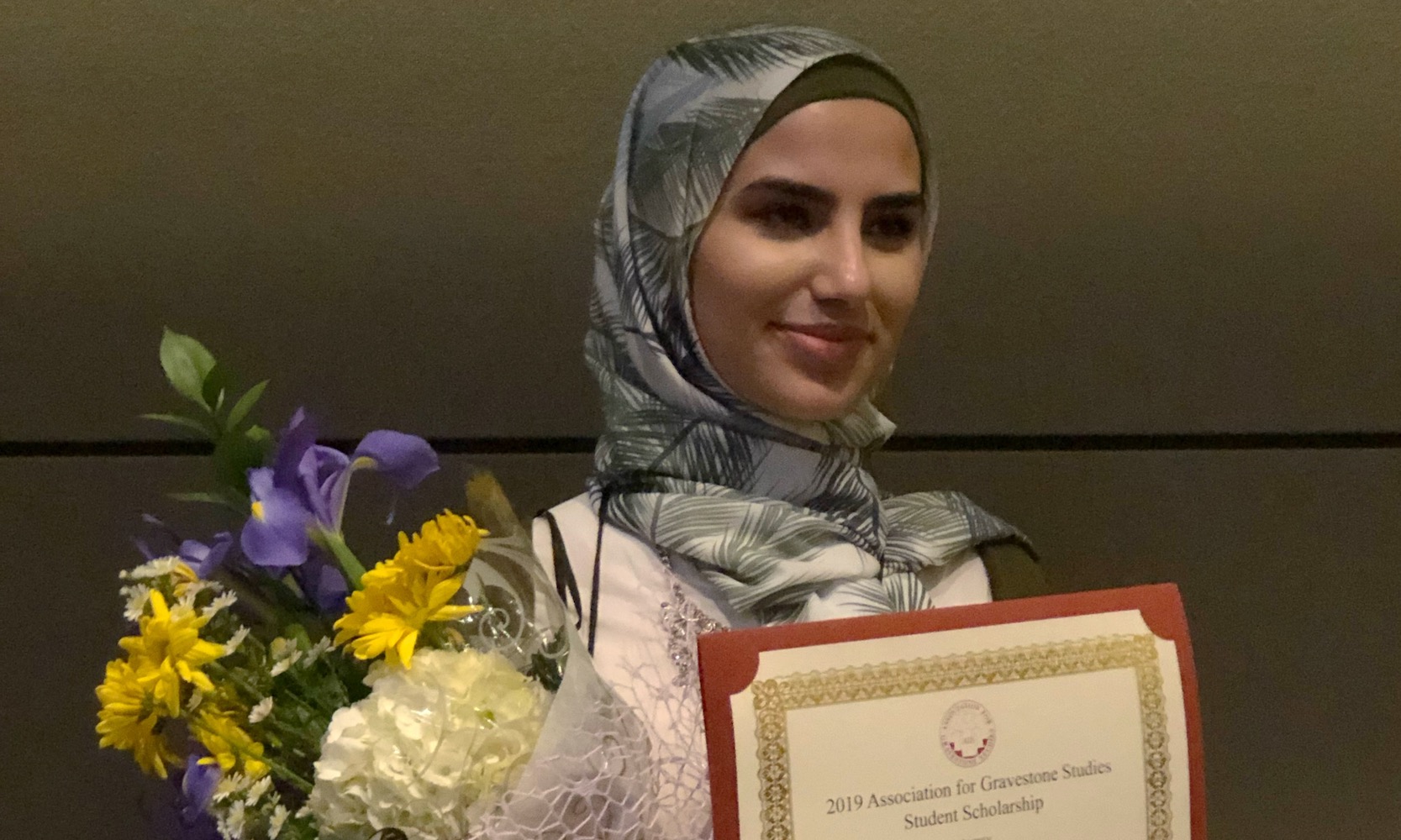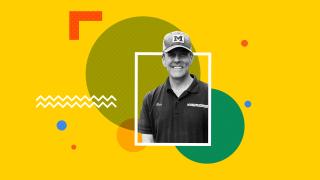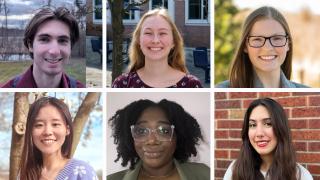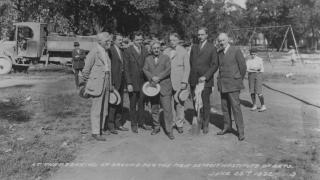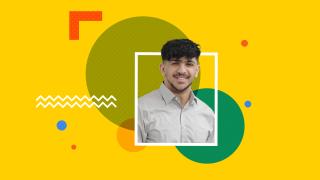
Graveyards are full of life stories. But a cemetery in Iraq, where senior Zeinab Alsheraa’s family is buried, has more than most.
Alsheraa describes Wadi Es Salaam (Valley of Peace) cemetery in Iraq as large, though that might be an understatement — it’s twice the size of Las Vegas with 10 million graves and counting. It’s clean and well cared for — rose water is sold so people can wash their family gravestones. It dates back to 661 A.D. — making it one of the oldest in the world.
But when Alsheraa went to write a research paper about it for an Honors course, Gravestones and Monuments, she found that information on the Unesco World Heritage site has little information available outside of a Wikipedia page and name-only mentions.
“It was strange that not much was out there. It’s the largest cemetery in the world. Aren’t people curious on why? I was.”
So she decided to conduct the primary-sourced research herself.
The result “Wadi As Salam, The World's Largest Cemetery” not only earned her an A in the course, it also got Alsheraa noticed by the international organization Association for Gravestone Studies. She was selected as the 2019 Student Scholar and was a featured speaker at their conference in June, which included an all-expenses paid trip to the conference and a scholarship.
“I had never read anything like it,” says Political Science Professor Ron Stockton, who taught the course and encouraged Alsheraa to submit her research paper to AGS. “I have traveled around the world and done gravestone research for decades and did not know these things. Zeinab shared her and her families’ knowledge of this sacred place to give us cultural insight. Her presentation was phenomenal too; no one could believe that she was an undergraduate student. She’s a superstar.”
And Stockton wasn’t the only attendee who was impressed: Elise Ciregna, a Harvard University graduate program administrator, invited Alsheraa to apply to the Ivy League school. The materials conservator for the U.S. National Park Service, Jason Church, told Alsheraa she should publish a book and offered to assist with it.
During her presentation, Alsheraa shared photos and stories of why the Shia Muslim cemetery is the size of a major metropolis and continues to grow — it’s located near the shrine of Imam Ali ibn Abi Talib, who Shia Muslims believe was designated by the prophet Muhammad to lead after him.
“It’s believed that the closer you are to a holy person after you die, the easier your transition into the afterlife will be,” she says. “People from all around the world want to be buried there because of the connection to the Imam.”
She spoke about how to get around the vast area. Small cars are available for mourners to drive the roads. And the navigation system in place is very personal — basically, you ask an employee. Most have been there for years and their knowledge has been passed down to them from the previous generation.
Alsheraa also shared information about others buried there too; people with whom she has a personal connection.
There’s Alsheraa’s beloved grandfather Sayed Ali Almusawi, who died in 2015; she dedicated her research work and presentation to him. And there’s the doctor who saved Alsheraa’s life when she was a young refugee girl fleeing the Iraq War. “I was only four years old and very sick. My parents were begging people to provide care for me, but no one would. But this doctor decided to make sure that I got help,” says Alsheraa, a pre-med student who has summer internships at Beaumont Hospital in Dearborn and in a local cardiac clinic. “He’s the reason I want to be a physician; I want to go out and give care to people who might be overlooked.”
Alsheraa says she never thought a place that focuses on her family’s past and an Honors elective course that wasn’t tied to her major could advance her future. But she now sees things differently. She’s made connections. And, perhaps more importantly, she was reminded that death shouldn’t be seen as taboo or unnatural.
“In the medical field, we always try to bargain with money and science to prolong life. It got me to reflect more about why we do this and what this means,” she says. “I don’t have answers, but it reminded me that death is a natural part of life. In the course of our lives, it’s only a moment. So I want to remember and reflect on how I got to where I am today and all the steps that have happened in between. That’s the part that matters. And that—to reflect on our lives—is why we have cemeteries."

